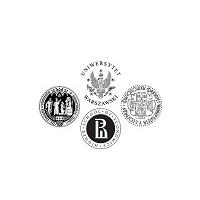The humanist approach to learning and scholarship implies an awareness of the linguistic and rhetorical particularities of the language we are working with. In the course of the program you will gain (or enhance) working knowledge in an ancient language which is relevant for the aspects of East-Western cultural heritage that you will specialize in. Studying cultural and intellectual contacts between Western Europe, Central Europe and Eastern Europe, you will learn to understand the common cultural heritage as well as mutual influences. The particular focus on philological and historical skills will enable you to work with primary sources and to trace linguistic, cultural and intellectual processes at their sources. You will gain an insight into Western and Eastern European traditions of scholarship and will be constantly encouraged to reflect on the traditions of your scholarly work and to develop your own approach in a dialogue with teachers in Cologne, Warsaw and Moscow.
We believe that some of the most important skills that our philological, cultural and historical studies can impart are “transferable skills”. The dialogue with a long traditions of scholarship teaches to solve complex problems (thematically related to the contacts between the Eastern and Western European cultural spheres). The program gives you the opportunity to work in an international team in two different cultural and scholarly environments. Together you will learn to approach problems at their roots and to find individual solutions beyond the common paths. You will learn to address the problem in a historical perspective (the “longue durée”). You will become aware of how different cultural and historical backgrounds have shaped different traditions of scholarship and learning in East and West, and how, in turn, the traditions of scholarship and historiography have shaped the image of the past and the meaning of a national culture. Working actively with at least two languages you will develop an insight into their beauty and possibilities.
